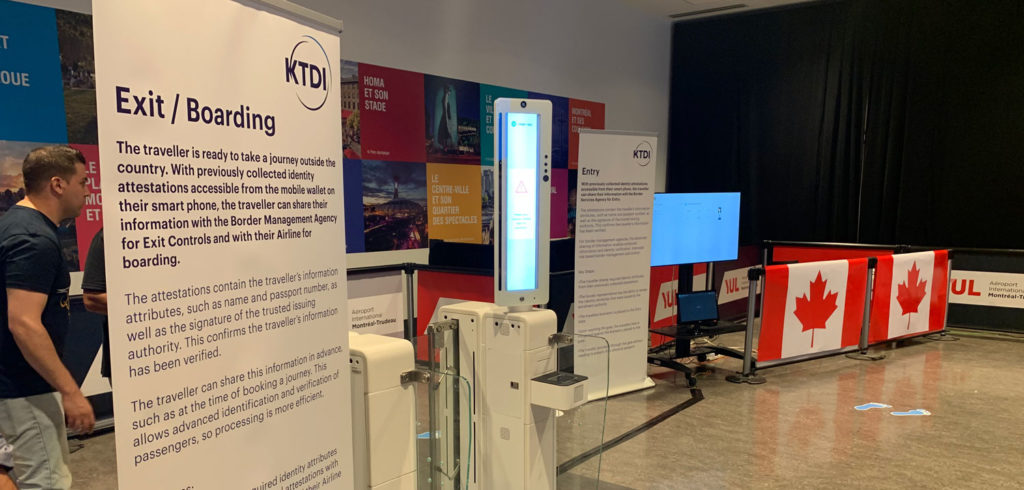The World Economic Forum, an international not-for-profit organization concerned with improving the state of the world, has partnered with the Canadian and Dutch governments to launch the first pilot project for paperless travel between the two countries.
Known Traveller Digital Identity (KTDI) is the first platform to use a traveler-managed digital identity for international paperless travel. It will be integrated with partner systems and tested internally throughout 2019, with the first end-to-end paperless journey expected to take place in early 2020.
The pilot initiative is a collaboration between government and industry to create an interoperable system for secure and seamless travel.
“By 2030, international air travel is expected to rise to 1.8 billion passengers, up 50% from 2016. With current systems, airports cannot keep up,” said Christoph Wolff, head of mobility, World Economic Forum. “This project offers a solution. By using interoperable digital identities, passengers benefit from a holistic system for secure and seamless travel. It will shape the future of aviation and security.”
KTDI provides a frictionless travel experience for passengers while allowing them to have greater control over their personal data. The identity data that is usually stored on a chip on a passenger’s passport is instead securely stored and encrypted on their mobile device. Passengers can manage their identity data and consent to share it with border authorities, airlines and other pilot partners in advance. Using biometrics, the data is checked at every leg of the journey until arrival at the destination, without the need for a physical passport.
Passengers establish a ‘known traveler status’ over time through the accumulation of ‘attestations’ or claims that are proven and declared by trusted partners, such as border agencies and recognized airlines. The result is a reusable digital identity that facilitates more streamlined and tailored interactions with governments, airlines and other partners.
“Canada is pleased to collaborate with the World Economic Forum, the Government of the Netherlands and our industry partners to enhance aviation security and make international air travel safer by testing new and emerging technologies,” said Marc Garneau, Canada’s minister of transport. “The KTDI pilot project will help facilitate seamless global air travel and benefit the world economy by enhancing the traveler experience, while ensuring that cross-border security is maintained.”
The governments of Canada and the Netherlands are joined by Air Canada, KLM Royal Dutch Airlines, YUL Montreal-Trudeau International Airport, Toronto Pearson International Airport and Amsterdam Airport Schiphol. This pilot group is supported by technology and advisory partner Accenture, with Vision Box and Idemia as technology component service providers.
KTDI is based on an interoperable digital identity, linked directly to government-issued identity documents (ePassports). It uses cryptography, distributed ledger technology and biometrics to ensure portability and to safeguard the privacy of personal data. The system’s security relies on a decentralized ledger platform that all partners can access. This ledger provides an accurate, tamper-proof record of each traveler’s identity data and authorized transactions.

